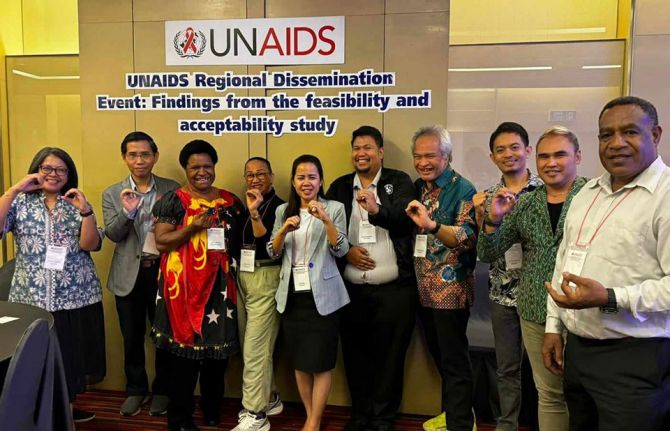
Feature Story
Achieving sexual and reproductive health and rights for women and girls through the HIV response
19 July 2011
19 July 2011 19 July 2011
On the periphery of the IAS 2011 conference taking place in Rome from 17-20 July 2011, UNAIDS in collaboration with the Global Coalition on Women and AIDS (GCWA), ATHENA, Salamander Trust, WECARe+ and Network Persone Seropositive convened a town hall dialogue to discuss how the HIV response facilitates the achievement of sexual and reproductive health and rights for all women, including women living with HIV, at every stage of their lives.
For women living with HIV stigma and discrimination and gender-based violence acutely affect their access to comprehensive services and human rights. Within health services, they often face a lack of choice with regard to family planning; disapproval from service providers with regard to meeting sexuality and fertility desires; and violation of their sexual and reproductive rights in the form of coerced or forced abortion or sterilization. Participants agreed that advancing the health and rights of women in all their diversity is fundamental to the success of the HIV response, just as the HIV response is a critical avenue for achieving sexual and reproductive health and rights for women.
The event was also used as a platform to launch a report Community Innovation: Achieving sexual and reproductive health and rights for women and girls through the HIV response. Compiled by UNAIDS and the ATHENA Network, it presents case studies pioneering community undertakings to advance women’s sexual and reproductive health and rights through the HIV response and vice-versa, from different community perspectives. This report recognizes that women face unique challenges to access and fulfil their sexual and reproductive health and rights, including gender-based violence, and therefore have less access to HIV prevention, care and support services.
Women and girls at the community level, and at every level, must be supported to demand quality services that meet their needs and those of their community
UNAIDS Deputy Executive Director, Programme, Dr Paul De Lay.
“Women and girls at every level and throughout different stages of their lives must be supported to demand quality services that meet their needs and those of their community,” said UNAIDS Deputy Executive Director, Programme, Dr Paul De Lay.
Learning from these community case studies is an opportunity to enhance the AIDS response, in light of the Millennium Development Goals and the 2011 Political Declaration on HIV/AIDS. The case studies indicate that for responses to be effective they must include the empowerment and inclusion of women in all their diversity, dedicate attention to sexual and reproductive health, including improvements in maternal and child health, and address the socio-cultural practices underlying gender inequality.
UNAIDS Getting to zero: strategy 2011-2015 also places gender equality and human rights as one of three core pillars. This report is part of that commitment to ensuring that women and girls’ rights are met through the HIV response and it was undertaken in the context of the UNAIDS Agenda for accelerated country action for women, girls, gender equality and HIV.
“UNAIDS continues to be a strong advocate for women’s health and rights, as well as to strongly stand against stigma and discrimination amongst all marginalized groups. We will continue to do so until we have achieved the vision of zero discrimination,” said Dr De Lay.



